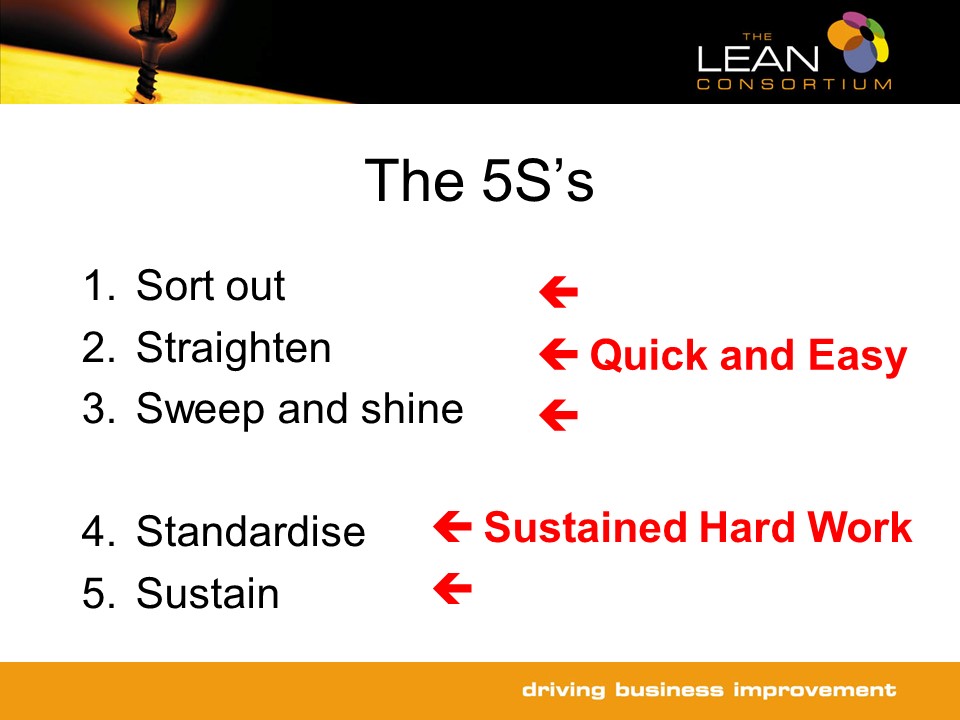Many people find the first three stages of 5S fairly easy to do, but Sustaining 5S activities can be a real challenge. So here’s a simple approach you might find helpful:
Working with the people in each area, decide on a small number of things you really want to be better organised (the “vital few”).
Describe in simple words what good looks like. If you possibly can, phrase this as a simple “Yes / No” question, where “Yes” represents the desired outcome. Examples might be “All tools back in the correct places on the shadow board at the end of the shift?”, “All gangways clear of any obstruction?”, “Floor clear of any packaging materials?”.
Create a simple checklist for each area, listing these questions.
At agreed times (hourly, at end of shift, daily, weekly, etc). check the work area against the items on the checklist, giving each a “Yes” or “No” answer.
Record how many items have been checked, and how many of these reached the standard (a “Yes” answer). Calculate your score as the number of “hits” (items that were a “Yes”), divided by the number of checks carried out, then mutiply this by 100 to create a percentage score.
Set a target / desired level for the next period of time (eg “95% by March 2020”), and compare this with your current score.
Make the scores visible, tackle the reasons for any “No” results, recognise the team’s efforts and watch your 5S performance improve.
Periodically raise the standard – add new items to the list, make the standard more demanding, challenge the team to do better.
As always, please let us have your own thoughts, experiences and examples. And if you’d like some help in developing a sustainable approach to 5S, simply contact andrew.nicholson@improvemyfactory.com

